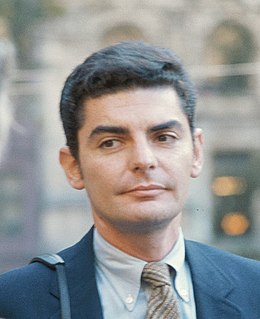A Quote by Penelope Spheeris
Me and Johnny Rotten have been talking about doing a movie of his book, No Irish, No Dogs, No Blacks. We have a script, so hopefully that's going to happen at some point in our careers.
Related Quotes
When you take on Hitchcock you know it's gonna provoke some sort of controversy, because there were so many people talking about the book [Stephen Rebello's Alfred Hitchcock and the Making of Psycho] and wanting it to be the film about the making of this movie [Psycho]. But that's been done. That's been done in the book, and Stephen Rebello himself was like, "I want a movie which is an entertainment for the audience." So we made the conscious decision.
I'm not sure about this Live 8 thing. Correct me if I am wrong, but are they hoping that one of these guys from the G8 is on a quick 15-minute break at Gleneagles and sees Annie Lennox singing "Sweet Dreams" and thinks: "F... me, she might have a point there, you know." It's not going to f... happen, is it? Keane doing "Somewhere Only We Know" and some Japanese businessman going: "Aw, look at him...we should really f... drop that debt, you know." It's not going to happen, is it?
If I were an immigrant Latino not born in the US, I could not have written Searching for Whitopia: An Improbably Journey to the Heart of America book. And that is because many of the Whitopians would not have been comfortable talking about their views on immigration, talking about their views on taxes. And they wouldn't have spilled to me the new script on race and poverty as they did.
The script [of Regression] wasn't the draw for me. It was largely Alejandro [Amenabar] and his way of talking. To hear him talking about the script was way more interesting than the script. He wrote it, and so, English is his second language. It's an interesting thing. I've had that before. I was directed by Alfonso Cuarón before, too. It's always interesting when you're being directed by somebody like that. So much of directing is about communication, and finding the right words, and what it means, and how to convey certain emotions and ideas.
The first time I was on 'Johnny Carson,' I remember being so scared, but the minute he started talking to me, I felt a little more comfortable because I just knew he was going to take care of me. Hopefully, I have learned something from watching him for so many years that I can offer that to a guest.
As I write, Johnny Rotten's first moments in "Anarchy in the U.K." - a rolling earthquake of a laugh, a buried shout, then hoary words somehow stripped of all claptrap and set down in the city streets - I AM AN ANTICHRIST - Remain as powerful as anything I know. Listening to the record today - listening to the way Johnny Rotten tears at his lines, and then hurls the pieces at the world; recalling the all-consuming smile he produced as he sang - my back stiffens; I pull away even as my scalp begins to sweat.
When I get into 'Lucha Underground,' now it feels like I'm part of a collaboration. And I'm talking about storylines; I'm talking about how we can put matches together, where we're going to go, what's going to happen to 'Lucha Underground' as a promotion; what's going to happen with my character; and I was back in suddenly.






































